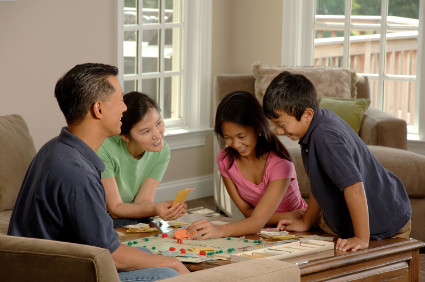During this time of social distancing, students and staff at Stevenson University are looking for ways to avoid spending most of their day behind a screen and instead spend some quality time with family.

In a time where almost everything in this world revolves around a screen, from doing school assignments on a computer, watching television, or playing video games, it is hard not to be on these devices all day. Being forced to stay in the house with family makes it even harder, but the continuous use of these devices can affect one’s health.
“There are health benefits associated with slimming screen time that families should be aware of, including improved physical health, decreased obesity, increased time to try new activities, improved mood, and enhanced relationships,” according to Margaret Bach in an article from the Mayo Clinic Health System.
Instead of playing video games, try having a game night of strictly board games and card games with your family. According to Melanie Hempe and Eason Futch in an article from the “Charlotte Parent,” “Board games give your child a chance to hang out with you and practice life skills in a very safe, fun environment.”
Hempe suggests some of the following: Trivia, Scrabble, Ticket to Ride, Pictionary, Trouble, Checkers/Chess, Monopoly, Risk, Clue, Apples to Apples, Sorry, Life, Yahtzee and Backgammon. ArsTechnica lists 30 additional popular games to play during quarantine that can give the brain a workout.
Donavan Hale, a sophomore at Stevenson University, said his family has a designated no-phone time during dinner and when they are playing their favorite card game, Phase 10. This is a competitive card game with 10 different sets of requirements to meet during a series of phases.

Hiking, biking, gardening and backyard camping also present opportunities to get away from the bluescreen. Painting, sewing, and baking could become new skills that demand creativity and focus, and could offer an outlet for time well spent.
Lessening screen time is not limited to playing board and card games; it can be learning and creating origami, working on puzzles, or reading a book, according to Micah Klug in “The Ultimate Guide To Having Fun Without Video Games.”
Sophomore Sadiq Pitts has enjoyed playing Uno with his family once a week during this crisis. He added that the game gets too intense for any of them to be looking at their phones or to be watching TV.
These other activities will help to avoid relying solely on social media, television and video games to get through these tough times. Those are replaceable and may be forgotten when something newer and better comes out, but memories with family will always be remembered.

























































